Prostatectomy Cost in South Korea from top hospitals starts from KRW 21483040 (USD 16000)approx
.Prostatectomy is the operation performed to remove the prostate gland along with its surrounding tissues.
This generally involves the seminal vesicles plus some surrounding lymph nodes. The goal of this treatment is to treat prostate cancer but that is possible only if cancer has not spread further than the prostate.
During Prostatectomy, the extracted prostate observed with a microscope to check whether prostate cancer reached the prostate’s edge or not. If it has reached the edges then it has probably spread further as well, and so additional treatments are required in this case.
Prostatectomy treatment is an ideal resolution for men below the age of 75 plus who have a life expectancy of at least a decade or more. These people can get the most out of the Prostatectomy.
At first, the risk of cancer’s spread is confirmed with the help of the results of the PSA level and the biopsy report. For more detailed testing, CT scans, MRI scans, bone scans, and ultrasound can be performed.
If the test reveals that cancer has not spread further than the surgeon might recommend other treatment options which include hormone therapy or radiation therapy, etc.
Similar to the cost of other surgical treatments for cancer, the prostatectomy cost also varies from patient to patient depending on the severity and spread of cancer.
Hence there is an estimated range for the cost which is from $10,100 to $135,000 in the United States.
| Country | Cost | Local_currency |
|---|---|---|
| Czechia | USD 14500 | Czechia 329005 |
| Greece | USD 11300 | Greece 10396 |
| India | USD 5000 | India 415750 |
| Israel | USD 10000 | Israel 38000 |
| Lithuania | USD 4500 | Lithuania 4140 |
| Malaysia | USD 7000 | Malaysia 32970 |
| South Korea | USD 16000 | South Korea 21483040 |
| Spain | USD 14800 | Spain 13616 |
| Thailand | USD 11140 | Thailand 397141 |
| Tunisia | USD 6850 | Tunisia 21304 |
| Turkey | USD 7020 | Turkey 211583 |
| United Arab Emirates | USD 11200 | United Arab Emirates 41104 |
| United Kingdom | USD 12000 | United Kingdom 9480 |
Treatment cost
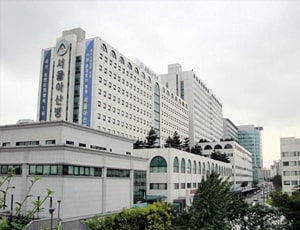
Asan Medical Centre located in Seoul, South Korea is accredited by ISO. Also listed below are some of the most prominent infrastructural details:

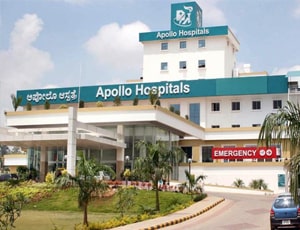
Types of Prostatectomy in Apollo Hospitals Bannerghatta and its associated cost
| Treatment Option | Approximate Cost Range (USD) | Approximate Cost Range (INR) |
|---|---|---|
| Prostatectomy (Overall) | 3441 - 8899 | 275049 - 728715 |
| Radical Prostatectomy | 3387 - 7877 | 271727 - 650050 |
| Laparoscopic Prostatectomy | 5717 - 8971 | 460923 - 753476 |
| Robotic Prostatectomy | 6740 - 9117 | 547610 - 725483 |
| Open Prostatectomy | 4448 - 7894 | 363965 - 633032 |
DOCTORS IN 13 SPECIALITIES
FACILITIES & AMENITIES
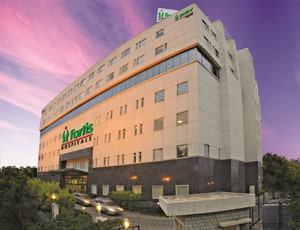
Types of Prostatectomy in Fortis Hospital and its associated cost
| Treatment Option | Approximate Cost Range (USD) | Approximate Cost Range (INR) |
|---|---|---|
| Prostatectomy (Overall) | 3050 - 8084 | 248849 - 664403 |
| Radical Prostatectomy | 3048 - 7115 | 249231 - 585299 |
| Laparoscopic Prostatectomy | 5088 - 8131 | 416483 - 668013 |
| Robotic Prostatectomy | 6072 - 8126 | 500373 - 666429 |
| Open Prostatectomy | 4041 - 7131 | 334160 - 579752 |
DOCTORS IN 12 SPECIALITIES
FACILITIES & AMENITIES
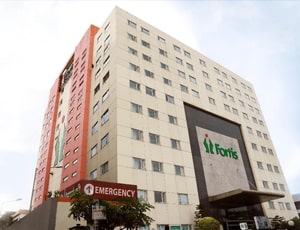
Types of Prostatectomy in Fortis Hospital and its associated cost
| Treatment Option | Approximate Cost Range (USD) | Approximate Cost Range (INR) |
|---|---|---|
| Prostatectomy (Overall) | 3046 - 8151 | 249668 - 666506 |
| Radical Prostatectomy | 3057 - 7120 | 250618 - 585334 |
| Laparoscopic Prostatectomy | 5054 - 8086 | 417599 - 667128 |
| Robotic Prostatectomy | 6067 - 8080 | 497598 - 668935 |
| Open Prostatectomy | 4078 - 7138 | 334140 - 581541 |
DOCTORS IN 12 SPECIALITIES
FACILITIES & AMENITIES

Types of Prostatectomy in Sarvodaya Hospital and Research Centre and its associated cost
| Treatment Option | Approximate Cost Range (USD) | Approximate Cost Range (INR) |
|---|---|---|
| Prostatectomy (Overall) | 3044 - 8082 | 249588 - 665884 |
| Radical Prostatectomy | 3056 - 7115 | 248991 - 579818 |
| Laparoscopic Prostatectomy | 5095 - 8106 | 415785 - 666006 |
| Robotic Prostatectomy | 6065 - 8129 | 501215 - 663802 |
| Open Prostatectomy | 4057 - 7105 | 331300 - 582121 |
DOCTORS IN 14 SPECIALITIES
FACILITIES & AMENITIES
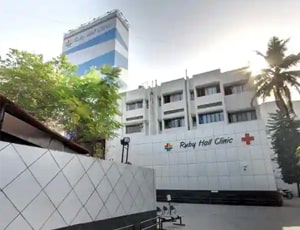
Types of Prostatectomy in Ruby Hall Clinic and its associated cost
| Treatment Option | Approximate Cost Range (USD) | Approximate Cost Range (INR) |
|---|---|---|
| Prostatectomy (Overall) | 2777 - 7566 | 230630 - 605142 |
| Radical Prostatectomy | 2769 - 6449 | 232353 - 530873 |
| Laparoscopic Prostatectomy | 4689 - 7594 | 377310 - 612703 |
| Robotic Prostatectomy | 5612 - 7455 | 457600 - 608554 |
| Open Prostatectomy | 3709 - 6649 | 305177 - 536032 |
DOCTORS IN 13 SPECIALITIES
FACILITIES & AMENITIES
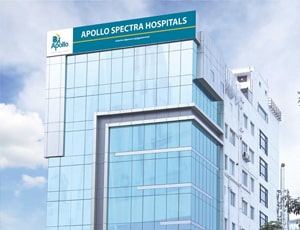
Types of Prostatectomy in Apollo Spectra Hospitals and its associated cost
| Treatment Option | Approximate Cost Range (USD) | Approximate Cost Range (INR) |
|---|---|---|
| Prostatectomy (Overall) | 3045 - 8114 | 250670 - 664203 |
| Radical Prostatectomy | 3060 - 7074 | 248794 - 583624 |
| Laparoscopic Prostatectomy | 5078 - 8146 | 416917 - 662863 |
| Robotic Prostatectomy | 6073 - 8091 | 497527 - 662895 |
| Open Prostatectomy | 4044 - 7079 | 332457 - 583261 |
DOCTORS IN 10 SPECIALITIES
FACILITIES & AMENITIES
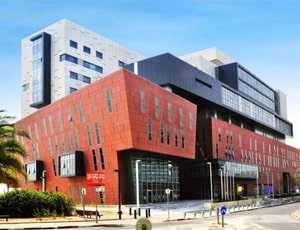
Assuta Hospital located in Tel-Aviv, Israel is accredited by JCI. Also listed below are some of the most prominent infrastructural details:
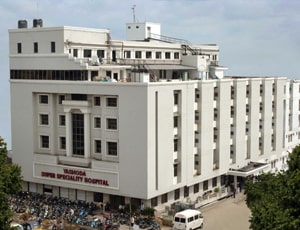
Types of Prostatectomy in Yashoda Hospital, Malakpet and its associated cost
| Treatment Option | Approximate Cost Range (USD) | Approximate Cost Range (INR) |
|---|---|---|
| Prostatectomy (Overall) | 3049 - 8084 | 249541 - 665899 |
| Radical Prostatectomy | 3045 - 7077 | 250158 - 581229 |
| Laparoscopic Prostatectomy | 5064 - 8119 | 414993 - 663290 |
| Robotic Prostatectomy | 6080 - 8159 | 498768 - 666573 |
| Open Prostatectomy | 4042 - 7089 | 332327 - 583909 |
DOCTORS IN 10 SPECIALITIES
FACILITIES & AMENITIES
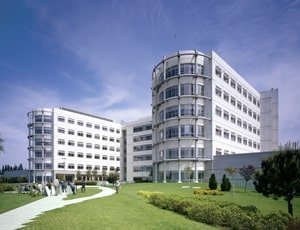
Types of Prostatectomy in Anadolu Medical Center and its associated cost
| Treatment Option | Approximate Cost Range (USD) | Approximate Cost Range (TRY) |
|---|---|---|
| Prostatectomy (Overall) | 4580 - 10024 | 134343 - 302299 |
| Radical Prostatectomy | 3898 - 8833 | 120989 - 275900 |
| Laparoscopic Prostatectomy | 5590 - 10119 | 169257 - 304248 |
| Robotic Prostatectomy | 6778 - 11226 | 206434 - 339508 |
| Open Prostatectomy | 5168 - 9488 | 149709 - 292892 |
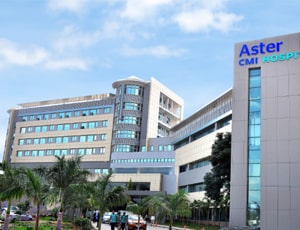
Types of Prostatectomy in Aster CMI Hospital and its associated cost
| Treatment Option | Approximate Cost Range (USD) | Approximate Cost Range (INR) |
|---|---|---|
| Prostatectomy (Overall) | 3057 - 8097 | 250594 - 663608 |
| Radical Prostatectomy | 3049 - 7077 | 249912 - 581864 |
| Laparoscopic Prostatectomy | 5065 - 8083 | 417326 - 665621 |
| Robotic Prostatectomy | 6115 - 8105 | 499226 - 666814 |
| Open Prostatectomy | 4056 - 7136 | 331832 - 581787 |
DOCTORS IN 13 SPECIALITIES
FACILITIES & AMENITIES
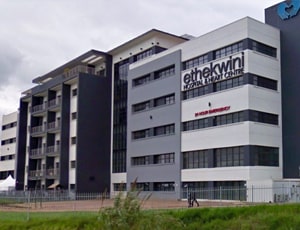
Apart from in-detail treatment procedures available, Lenmed Ethekwini Hospital and Heart Centre located in Durban, South Africa has a wide variety of facilities available for International Patients. Some of the facilities which are provided by them are Accommodation, Airport Transfer, Choice of Meals, Interpreter, SIM, TV inside room. Also listed below are some of the most prominent infrastructural details:
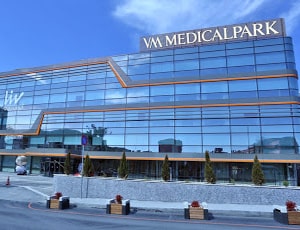
Types of Prostatectomy in I.A.U VM Medical Park Florya Hospital and its associated cost
| Treatment Option | Approximate Cost Range (USD) | Approximate Cost Range (TRY) |
|---|---|---|
| Prostatectomy (Overall) | 4408 - 10003 | 134830 - 298431 |
| Radical Prostatectomy | 3924 - 9191 | 117072 - 274136 |
| Laparoscopic Prostatectomy | 5526 - 10207 | 166262 - 303996 |
| Robotic Prostatectomy | 6751 - 11405 | 201727 - 332457 |
| Open Prostatectomy | 4995 - 9525 | 151735 - 290589 |
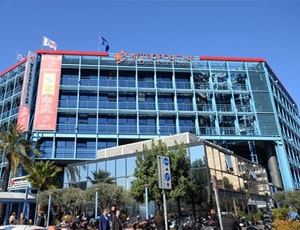
Apart from in-detail treatment procedures available, Metropolitan Hospital located in Pireas, Greece has a wide variety of facilities available for International Patients. Some of the facilities which are provided by them are Accommodation, Airport Transfer, Choice of Meals, Interpreter, SIM, TV inside room. Also listed below are some of the most prominent infrastructural details:
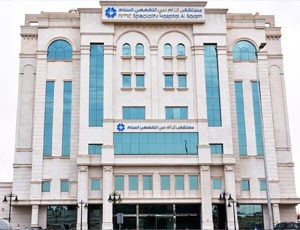
Apart from in-detail treatment procedures available, NMC Specialty Hospital Al Salam located in Riyadh, Saudi Arabia has a wide variety of facilities available for International Patients. Some of the facilities which are provided by them are Accommodation, Airport Transfer, Choice of Meals, Interpreter, SIM, TV inside room. Also listed below are some of the most prominent infrastructural details:
The prostate gland is present below the urinary bladder in men. It surrounds the urethra and produces fluid that helps in the movement of the semen. Prostatectomy is a surgery that involves total or partial removal of the prostate gland. It is commonly performed as a part of treatment for prostate cancer.
Radical prostatectomy: This surgery involves the removal of the entire prostate gland along with the surrounding lymph nodes. The surgical techniques used to conduct radical prostatectomy include the following:
Open simple prostatectomy: This surgical procedure involves removal of just the affected part of the prostate gland and is recommended for men with the cancerous prostate gland or benign prostatic hyperplasia (BPH).
Indications
Usually, general anaesthetic is given before the start of the procedure to make you unconscious. A spinal anaesthesia or an epidural anaesthesia will also be given, which causes numbness in the lower part of the body. Heart rate, blood pressure, and blood oxygen levels will be continuously monitored.
In retropubic surgery, the incision is made from the belly button to the pubic bone. In laparoscopic surgery, many small incisions are made through which a narrow tube (laparoscope) with a camera is inserted. The surgeon will see the internal structures on the monitor while performing the surgery. Robotic surgery is conducted in a few hospitals, where the surgical tools for the operation are used with the help of a robotic system. In perineal surgery, the incision is made in between the anus and the scrotum.
After making an incision, the prostate gland is removed and the incision is sutured. While removing the prostate gland, minor damage to the nerves is possible. The fluid is drained using a Jackson-Pratt drain. A catheter is inserted to drain the urine from the bladder.
The prostate-specific antigen (PSA) levels after radical prostatectomy are usually 0 after a month of the surgery. However, the PSA levels could be low in some patients even after the surgery. This is because some normal tissue is left behind even after the surgery.
Ask your healthcare adviser for the best multiple options and choose the one that meets your expectations
The cost of Prostatectomy in South Korea may differ from one medical facility to the other. The Prostatectomy package cost usually includes all the expenses related to pre and post surgery expenses of the patient. The Prostatectomy procedure in South Korea includes the fees of the surgeon, hospitalization and anesthesia as well. A prolonged hospital stay due to delayed recovery, new diagnosis and complications after surgery may increase the cost of Prostatectomy in South Korea.
Prostatectomy in South Korea is offered by multiple hospitals across the country. The following are some of the most renowned hospitals for Prostatectomy in South Korea:
Upon discharge from the hospital after Prostatectomy in South Korea, the patients are advised to stay for about 21 days for recovery. During this time, the patient undergoes medical tests and consultations. this is to ensure that the treatment was successful and the patient us safe to return.
There are certain additional cost that the patient has to pay apart from the Prostatectomy cost. These charges starts from USD 50 per person.
Some of the best cities in South Korea which offer Prostatectomy are:
The patient has to spend about 4 days in the hospital after Prostatectomy for proper recovery and to get clearance for discharge. The patient is subjected to several biochemistry and radiological scans to see that everything is okay and the recovery is on track. After making sure that patient is clinically stable, discharge is planned.
There are more than 1 hospitals that offer Prostatectomy in South Korea. The above mentioned hospitals have the required infrastructure and a dedicated unit where patients can be treated. Also, these hospitals follow the necessary guidelines as required by the medical associations for the treatment of Prostatectomy patients.
Some of the renowned doctors for Prostatectomy in South Korea are: